
Surrounding the realization of Karlheinz Stockhausen's ground-breaking work of electronic music and acoustic improvisation, Kontakte, performed by Judith Wegmann (piano) Jens Ruland (percussion) & Robert Torche (electronics), are Antoine Chessex's exploratory score Geschichte der Gewalt, applying improvisation to frequency and form, and the improvised prelude from all three: Spiegelungen.
In Stock
Quantity in Basket: None
Log In to use our Wish List
Shipping Weight: 3.00 units
EU & UK Customers:
Discogs.com can handle your VAT payments
So please order through Discogs
Sample The Album:
Judith Wegmann-piano
Jens Ruland-percussion
Robert Torche-electronics
Click an artist name above to see in-stock items for that artist.
Includes two black & white postcards of the performers.
UPC: 752156710424
Label: ezz-thetics by Hat Hut Records Ltd
Catalog ID: ezz-thetics 104
Squidco Product Code: 35225
Format: CD
Condition: New
Released: 2024
Country: Switzerland
Packaging: Cardboard Gatefold w/ booklet
Recorded, at Hardstudios AG, on August 14th, 5th and 16th, 2023, by Michael Brandli and Moritz Wtter.
"At the heart of this album is a magical new recording of Karlheinz Stockhausen's Kontakte, music that makes 'contacts' between sounds from the past and sounds made now. From February 1958 until May 1960 Stockhausen worked in the Elektronische Musik Studio of Westdeutscher Rundfunk, analysing instrumental sounds, making technical experiments that he documented in over 600 pages of sketches, and eventually generating, recording and processing the sounds that make up the electronic music of Kontakte. Stockhausen's original conception was that the performers would respond to this soundworld as the tape was played back through four loudspeaker groups surrounding the audience. He imagined a performance with three percussionists and a pianist, each of whom would control the sound level of a channel in the tape part while also reacting freely to what they were hearing in the tape part. But as he later told Robin Maconie, 'I started to rehearse this and it was a real disaster. The musicians did not know what to do.' Instead he made a score, for a single percussionist and pianist, that showed them what to do.
When it reached its first audience, premiered by the pianist David Tudor and percussionist Christoph Caskel at the ISCM Festival in Cologne on 11 June 1960, Kontakte was immediately recognised as a bright new star in the expanding universe of electronic music. The tape part was bolder, grander and more technically sophisticated than any previous electronic work and the interchange of sonic textures between recorded sounds and live instruments had a sense of liveness never heard before. Stockhausen's score offered Tudor and Caskel, and all the musicians who have subsequently played Kontakte, the possibility of making magic: to create the illusion that the electronic and instrumental music is being invented in the moment of performance.
Stockhausen's musical world is made up of opposites - long and short, high and low, loud and soft, dense and singular - but all these opposites are linked by scales of connection along which the music of Kontakte travels in every direction. Continuous electronic tones turn into pulses, noise-rich sounds emanate from the percussionist's cymbals and then fly between the loud-speakers, each of these contacts reminding us that this music is also making connections in time. The music travels across time, bridging the years that have passed since Stockhausen spent all those hours in the WDR studio to our moment of listening now, and between different types of time, combining the fixed time of the tape with the flexible time of live performance. And Stockhausen would want us to go further still, to try and imagine what lies beyond the perceptible limits of these scales of connection: that beyond the longest sound there is a sound that lasts for all eternity, or that there are sounds that inhabit dimensions beyond our human perception. The end of Kontakte seems to suggest that this music is on its way to just such a space.
If Kontakte is the star of this musical universe then the other two works on the album, Spiegelung and Geschichten der Gewalt, are perhaps planets in its orbit, owing their existence to the energy it emits but quite distinct in the sorts of musical life they support. Spiegelungen is an improvisatory, exploratory prelude, music to prepare us, opening our ears for what is to follow. The three elements that will combine in Kontakte - piano, percussion, electronics - are introduced, first in intimate close-up - we hear the grain of piano strings, noises from the instrument's frame, the surface of drums and gongs - then in the middle distance, the electronic processing always selectively amplifying, echoing and looping the acoustic source sounds.
Improvisatory exploration is also important in Geschichten der Gewalt, by the Swiss saxophonist, sound artist and composer Antoine Chessex, although its descent through three 'frequency zones' traces a far more singleminded trajectory than either Spiegelungen or Kontakte. The pianist's repeated rising four-note figures are to be played 'as fast as possible' but the score suggests that 'slowing and accelerating' will help her 'to engage with the frequencies of the piano's resonant body'. The percussionist is also asked to 'slow or accelerate' the continuous rolls that he plays on three large ride cymbals, each with a different resonance to match the three frequency zones; the result should be 'a carpet of sound' into which the frequencies of the piano can 'melt'. The final element of this music is a continuous frequency glissando, diffused through two loudspeakers behind the piano and cymbals, 'gluing the instruments together'.
Kontakte is more than sixty years old. Its contacts between acoustic instrumental sounds and electronic music, its multi-dimensionality and its invitation to time travel, all promised a future in which humanity might transcend the limitations of material reality. In Spiegelungen and Geschichten der Gewalt the electronic sounds emerge as transformations of that reality."-Christopher Fox, from the liner notes
Includes two black & white postcards of the performers.
Artist Biographies
• Show Bio for Judith Wegmann "Swiss pianist Judith Wegmann started to play the piano at the age of six. Shereceived her education at the famous Jazz School of Lucerne and the Swiss Jazz School of Bern with Roberto Domeniconi, Olivier Truan and ChristyDoran, focusing on Modern Jazz and Free Improvisation. Subsequently she earned a Bachelor and a Master's degree with highest distinctions in Classical Studies(Pedagogy and Piano) from the Music Universities in Neuchâtel and Lucerne. She continued studying with renowned musicians including Sebastian Risler, Karl-Andreas Kolly, Tobias Schabenberger, and Gerardo Vila, and attended Master Classes in Switzerland, France and Austria. Recently,she completed a second Master's degree at the Conservatory of Basel (with Fred Frith and Alfred Zimmerlin), concentrating on free improvisation and Contemporary Music. As a classical pianist Judith performs on stage on a regular basis and in different chamber music formations. Her ability to switch between different genres allows her to engage in classical, contemporary as well as improvisation-based projects. Judith frequently conceptualizes concert programs, taking management responsibilities from the early stages of planning to the public performance. Her concerts have been performed in Switzerland as well as abroad - for example "Bach, Schumann et l'ombre de Nico" with Alexandre Caldara (F/CH, 2006) or the performance series "Outdoor-Dialoge" with Claudia Bucher (2009/10). Cross-disciplinary projects are an important aspect of her work. Collaborations with composers, visual artists and writers foster new approaches and paths, as in"Schwarzberg" with Swiss composer Werner Bärtschi and Arno Camenisch (2011). She was hired bythe "Kunsthalle Basel" for the widely celebrated Swiss premiere of afro-american composer Julius Eastman's "Songs for a mad King"in 2013. In thesame year she participated in the production "Manon -Soundtrack des Lebens" for the "young stage" of the theater Biel-Solothurn. Further projects are planned for the near future. In 2011 and 2015 she was awarded a distinguished grant "Förderpreis" by the canton of Zug, Switzerland, which supported some of her most innovative projects. In 2013 she founded the New4Art Ensemble. Her work with this ensemble was awarded a prize by the city of Biel "Werkbeitrag". This award she also received in the years 2014 and 2015. Judith has been a member of the board of the Society of Free Improvisation ("Werkstatt für die freie Improvisierte Musik") in Bern since 2015 and is head of their"open workshop-". In 2017 her first Solo CD was released by HatHut records,which received a positive international reiew." ^ Hide Bio for Judith Wegmann
7/7/2025
Have a better biography or biography source? Please Contact Us so that we can update this biography.
Track Listing:
1. Spiegelung 14:05
2. Kontakte 34:49
3. Gechichten der Gewalt 19:36
Hat Art
Compositional Forms
Electro-Acoustic
Improvised Music
European Improvisation, Composition and Experimental Forms
John Cage
Trio Recordings
Staff Picks & Recommended Items
New in Compositional Music
Recent Releases and Best Sellers
Search for other titles on the label:
ezz-thetics by Hat Hut Records Ltd.


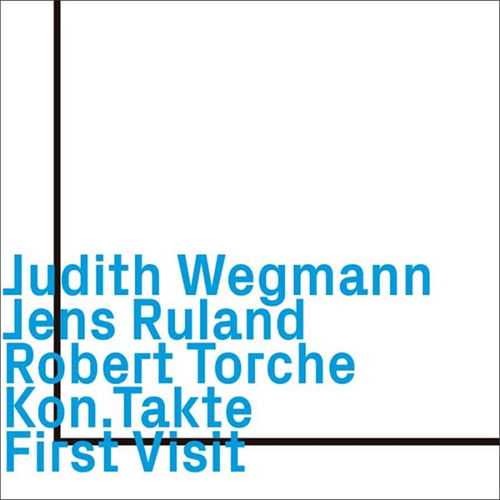
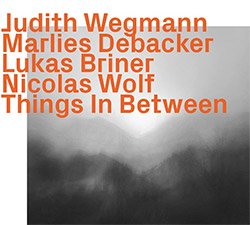
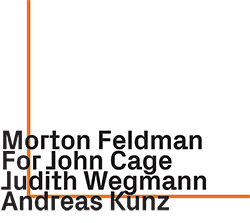
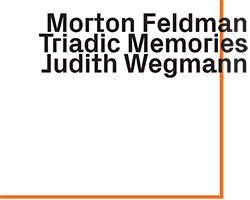



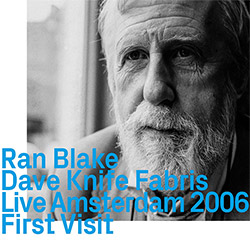
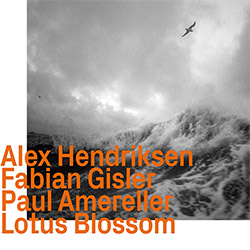
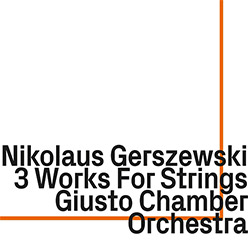

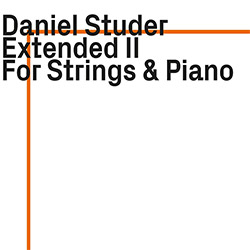

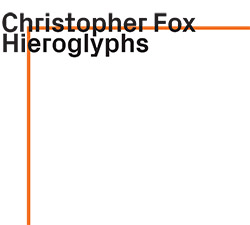
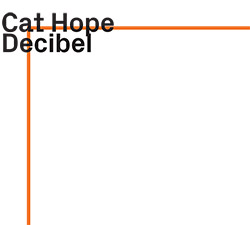
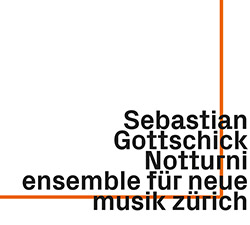
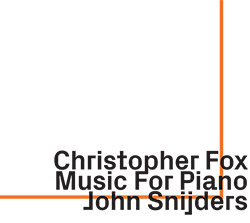
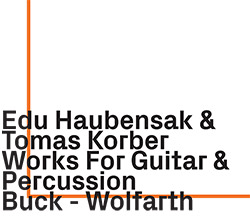

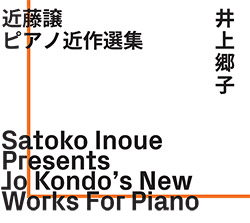
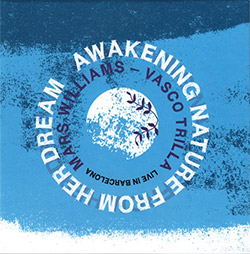
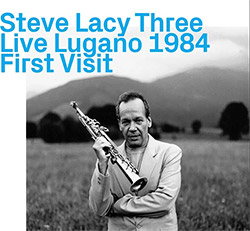
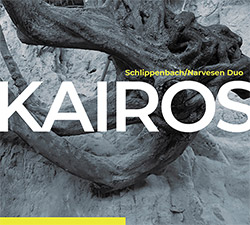
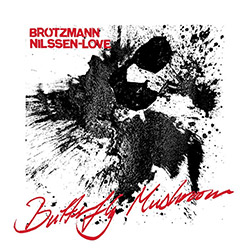

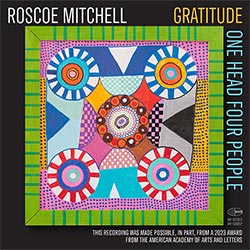







![+DOG+: The Light Of Our Lives [2 CDs]](https://www.teuthida.com/productImages/misc4/36009.jpg)


![Parker, Evan / Jean-Marc Foussat: Insolence [VINYL]](https://www.teuthida.com/productImages/misc4/36398.jpg)










![Deupree, Jerome / Sylvie Courvoisier / Lester St. Louis / Joe Morris: Canyon [2 CDs]](https://www.teuthida.com/productImages/misc4/36404.jpg)


![Eternities: Rides Again [CASSETTE]](https://www.teuthida.com/productImages/misc4/36247.jpg)

![Lopez, Francisco: Untitled (2021-2022) [2 CDs]](https://www.teuthida.com/productImages/misc4/36438.jpg)




![Eventless Plot | Haarvol: The Subliminal Paths [CASSETTE + DOWNLOAD]](https://www.teuthida.com/productImages/misc4/36232.jpg)







![Eventless Plot | Francesco Covarino: Methexis [CASSETTE + DOWNLOAD]](https://www.teuthida.com/productImages/misc4/36231.jpg)



![Das B (Mazen Kerbaj / Mike Majkowski / Magda Mayas / Tony Buck): Love [VINYL]](https://www.teuthida.com/productImages/misc4/36329.jpg)



![Hemphill Stringtet, The: Plays the Music of Julius Hemphill [VINYL]](https://www.teuthida.com/productImages/misc4/36409.jpg)









![Money : Money 2 [2 CDs]](https://www.teuthida.com/productImages/misc4/35894.jpg)




![Klinga, Erik: Elusive Shimmer [VINYL]](https://www.teuthida.com/productImages/misc4/36258.jpg)
![CHANGES TO blind (Phil Zampino): Volume 9 - I Wave on a Fine Vile Mist [CD + DOWNLOAD]](https://www.teuthida.com/productImages/misc4/36061.jpg)

![Wallmart / Rubbish: Asset Protection [split CD]](https://www.teuthida.com/productImages/misc4/35900.jpg)


![+Dog+: The Family Music Book Vol. 5 [2 CDs]](https://www.teuthida.com/productImages/misc4/35897.jpg)
![Kuvveti, Deli : Kuslar Soyledi [CASSETTE w/ DOWNLOAD]](https://www.teuthida.com/productImages/misc4/36107.jpg)

![Nakayama, Tetsuya: Edo Wan [CASSETTE w/ DOWNLOAD]](https://www.teuthida.com/productImages/misc4/36105.jpg)

![Brown, Dan / Dan Reynolds: Live At The Grange Hall [unauthorized][CASSETTE]](https://www.teuthida.com/productImages/misc4/36245.jpg)








![Palestine, Charlemagne / Seppe Gebruers: Beyondddddd The Notessssss [VINYL]](https://www.teuthida.com/productImages/misc4/36206.jpg)
![Palestine, Charlemagne / Seppe Gebruers: Beyondddddd The Notessssss [NEON GREEN VINYL]](https://www.teuthida.com/productImages/misc4/36207.jpg)

![Laubrock, Ingrid: Purposing The Air [2 CDs]](https://www.teuthida.com/productImages/misc4/35639.jpg)

![Yoko, Ono / The Great Learning Orchestra: Selected Recordings From Grapefruit [2 CDs]](https://www.teuthida.com/productImages/misc4/35841.jpg)







![Zorn, John / JACK Quartet: The Complete String Quartets [2 CDs]](https://www.teuthida.com/productImages/misc4/35609.jpg)

![Lonsdale, Eden: Dawnings [2 CDs]](https://www.teuthida.com/productImages/misc4/35480.jpg)



![Sorry For Laughing (G. Whitlow / M. Bates / Dave-Id / E. Ka-Spel): Rain Flowers [2 CDS]](https://www.teuthida.com/productImages/misc4/35985.jpg)

![Rolando, Tommaso / Andy Moor : Biscotti [CASSETTE w/ DOWNLOADS]](https://www.teuthida.com/productImages/misc4/36106.jpg)


![Electric Bird Noise / Derek Roddy: 8-10-22 [CD EP]](https://www.teuthida.com/productImages/misc4/35970.jpg)








![Elephant9 : Mythical River [VINYL]](https://www.teuthida.com/productImages/misc4/34624.jpg)



![Elephant9 with Terje Rypdal: Catching Fire [VINYL 2 LPs]](https://www.teuthida.com/productImages/misc4/35355.jpg)
![Deerlady (Obomsawin, Mali / Magdalena Abrego): Greatest Hits [VINYL]](https://www.teuthida.com/productImages/misc4/34876.jpg)







![Surplus 1980: Illusion of Consistency [CD]](https://www.teuthida.com/productImages/misc4/35069.jpg)
![Staiano, Moe: Away Towards the Light [VINYL + DOWNLOAD]](https://www.teuthida.com/productImages/misc4/35037.jpg)
![Coley, Byron: Dating Tips for Touring Bands [VINYL]](https://www.teuthida.com/productImages/misc4/17906.jpg)

![Lost Kisses: My Life is Sad & Funny [DVD]](https://www.teuthida.com/productImages/misc4/lostKissesDVD.jpg)